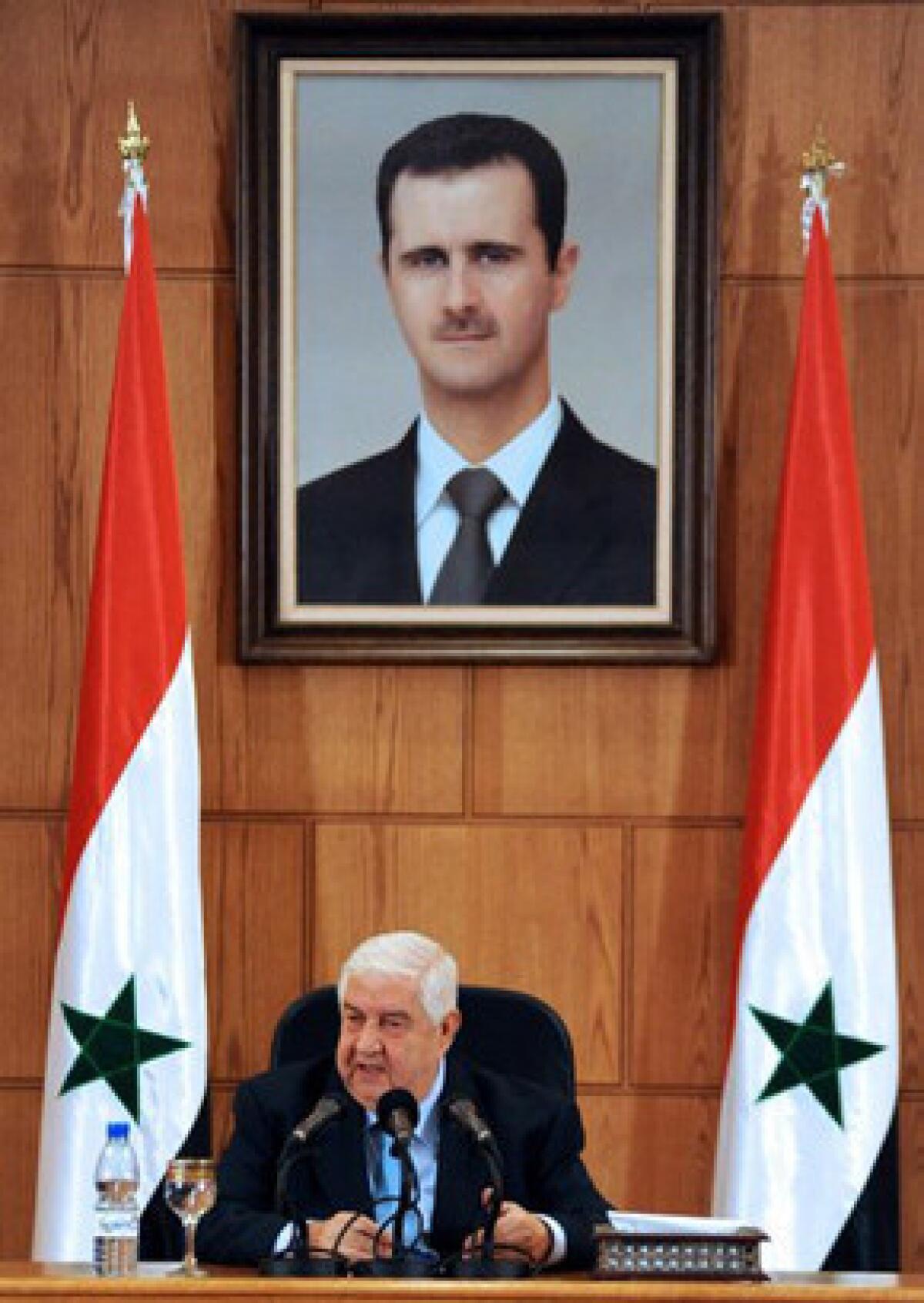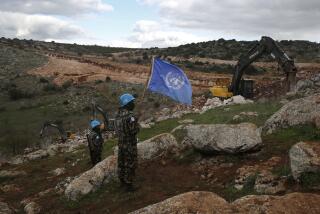U.N. team in Syria delays chemical weapons inspection

- Share via
BEIRUT — A United Nations chemical weapons team in Syria postponed a second day of inspections Tuesday for security reasons as the country’s foreign minister challenged the West to produce evidence that his government was behind last week’s alleged chemical attacks outside Damascus.
The U.N. team decided to put off inspections Tuesday “in order to improve preparedness and safety for the team,” the world body said in a statement. The U.N. is hopeful of resuming inspections Wednesday, an official said.
On Monday, the U.N. experts visited one district southwest of Damascus reportedly struck in last Wednesday’s alleged toxic bombardment. Sniper volleys damaged one of the team’s vehicles, though no one was hurt and the team was able to collect samples, interview witnesses and carry on with its mission, the U.N. said
The government and the rebels exchanged blame for the sniper incident.
The U.N. reiterated calls for “all sides in the conflict to give safe passage and access” to the team. The inspectors must travel from the relative safety of central Damascus to outlying districts that are under rebel control or heavily contested between opposition and government forces.
Each side in the conflict has vowed publicly to cooperate with the U.N. mission.
The U.N. is conducting its inquiry amid reports that the United States and its allies may be preparing for a military strike on Syria in response to last week’s alleged attack. U.S. officials have given no indication they would wait for the results of the team’s investigation on the ground in Syria.
Meanwhile, Syrian Foreign Minister Walid Moallem repeated the government’s denial of any involvement in last week’s alleged chemical attack, which according to the opposition left hundreds of civilians dead.
“We are all hearing the drums of war being beaten around us,” Moallem said at a news conference in the Syrian capital. “I dare them to produce any single piece of evidence” that Syria unleashed chemical weapons, Moallem said.
U.S. officials have asserted that there is “little doubt” that Syria was behind the attack but have not made any evidence public.
“Syria is not an easy target,” Moallem warned. “We have the means to defend ourselves, and we will surprise the other side with our means.”
Any foreign attack on Syria, the foreign minister charged, would benefit Israel and Al Qaeda.
Israel, which borders Syria, is a traditional adversary of Damascus, though the boundary line between two nations along the Golan Heights has been mostly quiet for decades. Several Al Qaeda-linked Islamist factions are among the most powerful rebel groups fighting to overthrow the secular government of Syrian President Bashar Assad.
Syria and Russia, a major ally of Assad, have accused the opposition of having carried out last week’s alleged toxic strike in a bid to instigate international intervention. The opposition has denied the charges and said the government was behind the assault.
ALSO:
Freed drug lord missing but present in Guadalajara
Afghan, Pakistani leaders meet, pledge cooperation
In China, Bo Xilai upstages prosecutors in corruption trial
Twitter: @mcdneville
More to Read
Sign up for Essential California
The most important California stories and recommendations in your inbox every morning.
You may occasionally receive promotional content from the Los Angeles Times.










